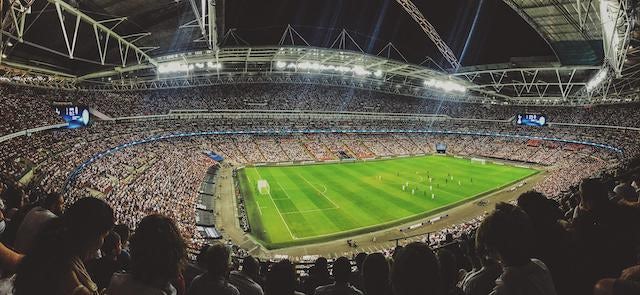 © Image by Pexels from Pixabay
© Image by Pexels from Pixabay
Earlier this spring, the British authorities announced their plans to introduce a ban on gambling advertisement featuring popular sports teams, celebrities and reality TV stars. The ban is set to go into effect in October this year. However, as the sports market gains a lot of their funding from deals with gambling companies, will they be able to cope?
The new British gambling advertisement ban comes amongst a long range of similar measures in sports all over the European continent. The British measure is the lightest one so far, as it only excludes certain celebrities, stars, and sports teams from participating in the advertisements.
The gambling advertisements include both betting and casino opportunities, for games such as video slots, poker, and sports wagering.
A ban to protect the youth
The ban has been made to protect younger viewers, as it is argued that the large exposure of gambling ads leads to familiarity and positive association. In other words, by seeing the brand name connected with a team that does well and/or is a person's favorite team or celebrity, a correlation is made that the brand is also good. This may lead to gambling habits in younger ages, as well as a larger risk for problem gambling.A Gambling Commission study conducted in 2018 found that there were already 450,000 gamblers among children between the ages 11-16, out of which 50,000 ranked as gambling addicts.
The estimated effect on the sports market
The discussions regarding the marketing ban started as early as 2020, following the total gambling advertisement ban in Spain. Since then, the British proposition faced a lot of backlash for harming the economy of the sports market.In British football, a large amount of the professional teams gain a large part of their revenue from partnerships of varying size with gambling firms. Gambling brands can be seen as main shirt sponsors, as well as lining the advertisement screens around the arenas. It was estimated that in Premier League alone the loss of gambling shirt sponsors could cost the sport more than £100 million, as most clubs' partnerships garner around £5-6 million per season.
The estimated losses were given extra attention as all proposed measures have been considered during the Covid-19 pandemic, which has further hurt the sports economy by restricting audience attendance and participation.
Comparatively mild outcomes
Compared to the total advertising bans implemented in Spain and Italy, Britain has proposed a moderately mild ban. Rather than forcing sports clubs and organizations to cease all partnerships with gambling businesses, they have limited the subject of the advertisements. This is to reduce the 'positive association' factor that is especially harmful to younger populations.According to the new regulation, only ads that are "likely to be of strong appeal to children or young persons, especially by reflecting or being associated with youth culture" will be banned. This means that team sponsorships won't be as affected as anticipated, even though the gambling ads are no longer allowed to feature specific team logos or stadiums.






